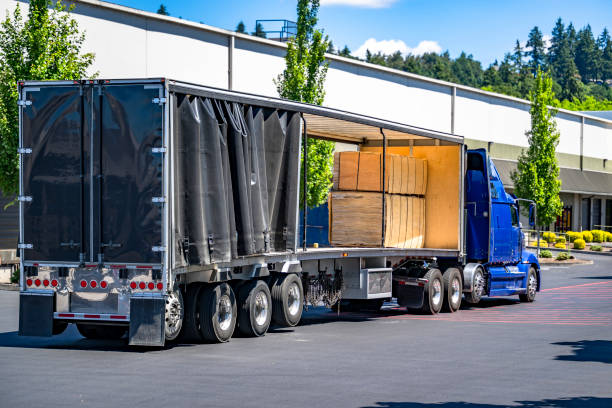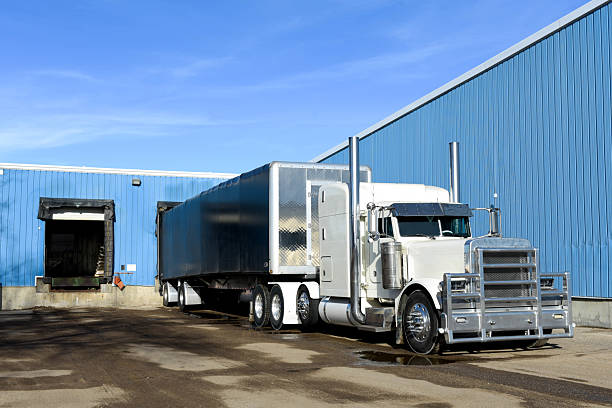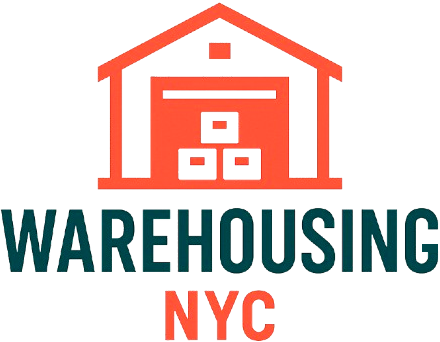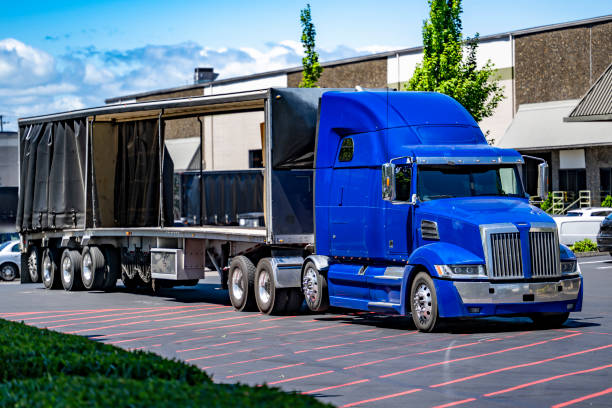In New York City, speed, space, and safety matter in every stage of warehousing and transport. Businesses need equipment that can protect valuable goods while keeping deliveries on schedule — and that’s exactly what a Conestoga trailer does.
The U.S. warehousing market continues to expand rapidly, with revenue projected to reach $343.2 billion by 2030, reflecting the growing need for efficient, secure, and flexible freight solutions like Conestoga trailers.
Table of Contents
Key Takeaways
✔ Conestoga trailers combine flatbed flexibility with full height protection for efficient transport.
✔ Conestoga trailers speed up loading and unloading, reducing turnaround tine in busy NYC warehouses.
✔ Conestoga trucks safeguard high-value and oversized goods from weather and debris.
✔ Conestoga trucks’ versatility supports diverse inventory across multiple industries and facility types.
✔ Investing in Conestoga flatbeds enhances logistics efficiently, safety, and compliance in urban operations.
What Is a Conestoga Trailer?
A Conestoga trailer is a type of flatbed equipped with a retractable rolling tarp system mounted on tracks. The tarp can slide open from either end, offering the same easy loading and unloading access as a flatbed Conestoga—but with the added benefit of complete weather and damage protection.
What Is the Difference Between a Flatbed and a Conestoga Trailer?
While both are open-deck trailers, the key difference lies in protection and convenience.
A flatbed leaves freight exposed to weather and debris, requiring tarps to cover the load. A Conestoga trailer, however, uses an integrated sliding tarp system that provides full coverage without manual tarping.
What Is a Conestoga Trailer Used For?
Conestoga trailers are used to transport freight that needs both accessibility and protection. Typical uses include:
- Machinery and equipment that can’t fit in a standard dry van
- Steel, lumber, and building materials that must stay dry
- Palletized products and retail goods that require side access
- High-value or fragile freight that needs secure coverage
For warehousing in NYC, these trailers simplify transitions between indoor storage and outdoor delivery, keeping freight safe through every stage of transit.
What Are the Different Types of Conestoga Trailers?
With the flatbed trailer market projected to surpass $10.5 billion globally by 2035, trailer manufacturers continue to refine their designs to meet rising logistics demands. This growth has fueled the development of different Conestoga configurations to serve specialized freight needs.
There are several types of Conestoga trailers, each designed to handle specific freight dimensions and weights:
- Standard Conestoga Flatbed: Ideal for general freight, offering weather protection and fast access.
- Step-Deck Conestoga: Designed for taller cargo that exceeds standard height restrictions.
- Double-Drop Conestoga: Used for oversized machinery or heavy loads that require a low center of gravity.
How Conestoga Trailers Support Warehousing Operations in NYC
In New York City, warehousing and freight management require precision, flexibility, and speed. The Conestoga truck plays a vital role in ensuring cargo moves efficiently between storage facilities, customers, and distribution points.
Efficient Urban Deliveries
Conestoga trailers are designed for quick loading and unloading in compact spaces, making them ideal for urban deliveries where time and accessibility are limited. Their tarp system allows operators to work faster in NYC’s tight delivery zones.
Reduced Turnaround Time
Because Conestoga trailers open from the sides and top, warehouses can load freight directly without detarping or repositioning. This reduces dwell time and increases throughput for busy warehousing NYC operations.
Protection for High-Value Goods
From electronics to industrial machinery, many NYC businesses handle expensive cargo. The Conestoga flatbed protects these goods from weather, debris, and theft during every stage of transport, minimizing risk and insurance claims.
Supports Diverse Inventory
Warehouses in NYC manage varied stock—from heavy industrial products to retail goods. A Conestoga truck accommodates all kinds of loads, offering the flexibility to serve multiple industries without compromising protection.
Flexibility for Non-Dock Facilities
Not every warehouse or customer site in New York has a loading dock. Conestoga trailers allow easy ground-level loading, offering more options for pickups and deliveries across the five boroughs.

What Are the Pros and Cons of a Conestoga Trailer?
Like any specialized equipment, a Conestoga trailer comes with both advantages and trade-offs. Understanding these helps businesses decide whether it’s the right fit for their freight and warehousing needs in NYC.
Here’s a quick look at the key pros and cons:
Pros
- Full protection from weather, dirt, and debris
- Faster loading/unloading, reducing warehouse dwell time
- Ideal for high-value freight that requires security
- Enhanced safety—no manual tarping needed
- Compliance-friendly for NYC freight regulations
Cons
- Slightly heavier, reducing max payload capacity
- Higher equipment cost compared to basic flatbeds
- Requires track maintenance to keep the tarp sliding smoothly
Despite minor drawbacks, the benefits far outweigh the trade-offs—especially for logistics providers focused on performance and safety like Warehousing NYC By Best.
Frequently Asked Questions (FAQs)
Are Conestoga trailers cost-effective for small businesses in NYC?
Yes. While a Conestoga trailer may cost slightly more than a standard flatbed, it saves time, reduces product damage, and lowers insurance risks—making it a smart long-term investment for warehousing NYC operations.
Can Conestoga trucks handle oversized or irregular freight?
Yes. A Conestoga truck is ideal for oversized, tall, or unevenly shaped cargo that can’t fit in standard enclosed trailers. Its flexible tarp system adapts to a wide range of freight sizes.
Are Conestoga flatbeds suitable for local NYC deliveries?
Absolutely. A Conestoga flatbed works well for urban deliveries where loading space is limited. It provides full coverage while maintaining easy access for quick city drop-offs.
What industries benefit most from using flatbed Conestoga trailers?
Industries such as construction, retail distribution, and manufacturing rely on flatbed Conestoga trailers for protected, efficient transport of valuable materials and equipment.
What maintenance do Conestoga trucks require?
Conestoga trucks need periodic inspections of their tarp tracks, rollers, and tension systems to maintain smooth operation and ensure maximum cargo protection.

Ready to Streamline Your NYC Warehousing and Shipping?
Don’t let weather, space limits, or handling challenges slow you down. Partner with Warehousing NYC By Best and take advantage of our Conestoga truck fleet to secure, store, and deliver your freight more efficiently.
Contact us today to learn how Conestoga trailers can enhance your logistics operations in New York, NY.

